Resuming intimacy postpartum with your partner can be challenging and may require more time and effort than anticipated. Whether your delivery was vaginal or via c-section, doctors generally recommend waiting at least six weeks after childbirth to have sex. However, this is only a minimum guideline; you should not feel pressured by it and should wait until you feel ready. For some, this might be six months; for others, it may be a year or more postpartum. Your body may have healed, but your mind might still need more time.
Everyone’s experience with postpartum sex is different. Some women struggle to restore sexual intimacy, while others feel excited about it. Women who have encountered birth injuries may find sex painful, whereas others find it to be even better and more passionate after childbirth. There is no universal recipe or guideline for when and how to resume intimacy. Understanding responsive desire, female sexuality, and the obstacles behind low libido can help you regain intimacy with your loved one at a natural and unhurried pace. Remember, you are ready when you are ready. Rushing the process can cause distress, so it’s important to be honest with your partner and find solutions that work best for your individual needs.
In this article, I discuss both positive and negative postpartum sex experiences, exploring potential reasons behind low sex drive. I also share my own postpartum sex experience, a challenging journey shaped by childbirth injury. Despite the difficulties, this is a story of love, hope, ups and downs, and a reflection on what once seemed like an obvious aspect of sex life.
Navigating Postpartum Libido
I am noticing an increasing interest in the topic of postpartum sex and low libido in women. This is encouraging, but what worries me most is that many women often feel pressured to resume an active sex life too soon or for the wrong reasons. We rarely hear from medical practitioners that returning to pre-parental intimacy can take considerable time and effort, and it may completely reshape our understanding of bodily pleasure. Numerous factors contribute to low libido after having a baby. Depending on your postpartum stage, you might still struggle with hormonal imbalance, leading to low libido and vaginal dryness. Your post-baby body may look and feel different, often causing negative body image and impacting your confidence and self-esteem. Women who are still breastfeeding or healing from labor and delivery can find it difficult to “get in the mood” due to physical and emotional setbacks. Additionally, caring for a small human, combined with sleep deprivation and exhaustion, often results in fatigue and decreased sex drive. Our minds are so wrapped around our new demanding roles that sex may not be a priority, and that is perfectly normal.
Understanding responsive desire can be beneficial in navigating postpartum sexuality more effectively. Unlike spontaneous desire, which occurs suddenly, responsive desire arises from triggers such as physical touch, closeness, or other forms of intimacy. This type of desire needs space and time, as it is a response to pleasure and a reaction to sexual stimuli. Knowing that sex doesn’t need to start with arousal but can grow with the decision to spend intimate time with your partner may help you manage your postpartum libido more effectively. 1, 2
Remember, putting pressure on yourself to resume intimacy with your partner can lead to opposite results. Whether you are a parent of a baby, toddler, or small child, communicate honestly with your partner, organize childcare to make time for intimacy, explore various sexual and non-sexual ways to connect, and use plenty of lubricants if necessary. Lady, you have created a human, you are amazing, so be patient and kind to yourself.
Sex After Birth Injury
If you experienced physical or psychological childbirth injury, sex may be the last thing on your mind. Physical birth injuries include injuries to the perineal area, with first- to fourth-degree tears that can damage the skin, muscles, and nerves of the perineum. An episiotomy, a surgical incision between the vagina and anus to prevent severe perineal tears during labor is also considered a birth injury. Pregnancy and difficult childbirth may affect your pelvic floor, causing over-stretching or tearing of pelvic floor muscles, which can lead to pelvic organ prolapse (POP). Recovering from childbirth injury takes time and patience, making it perfectly normal to need more time to resume intimacy with your partner. If you feel overwhelmed, don’t hesitate to ask for help, talk to your healthcare provider, and speak honestly with your partner. Remember, follow your own timeline and proceed at your own pace.
Sex postpartum may be painful if you encountered birth injury. Vaginal tears or overgrown scar tissue from a c-section can cause discomfort, stinging vaginal pain, or a feeling of tightness during sexual intercourse. It is not uncommon to experience painful sex after having a baby, regardless of whether the birth was vaginal or via c-section. Painful intercourse, or ‘dyspareunia,'”is common in both pregnancy (10–62% in the first trimester, 13–44% in the second, and 17–69% in the third) and postpartum (12–62% at 3 months, 17–45% at 6 months, and 8–32% at 12–18 months).” 3 Regardless of the delivery method, doctors usually recommend waiting at least six weeks after childbirth to have sex. But your body and mind may need more time to heal. 4 Feeling pain during lovemaking is not okay and should not be ignored or downplayed. Early diagnosis of the reason behind painful sex is significant, as there are many treatments and therapies that can improve your sex life. If you would like to learn more about these treatments, read the article: “Broken Vaginas: Understanding and Healing Maternal Birth Injuries”, where I explore various treatments, offering hope and information to women facing birth injuries struggles.
In the book PMSL: Or How I Literally Pissed Myself Laughing and Survived the Last Taboo to Tell the Tale, Luce Brett very honestly discusses postpartum sex while coping with incontinence after childbirth. She expresses rightful anger about the misguided perceptions of intimacy and connection with a partner when dealing with ‘broken bodies.’ Brett asserts, “I stand by my feminist concern that women’s sexuality is consistently defined in terms of penetrative sex, and whether her fanny is still tight and usable for someone who wants to put something in there.” She emphasizes that this mindset and approach to intimacy with her loving husband do not truly reflect their connection. These strong and bold words gave me food for thought and reminded me about the necessity of honest conversations about female sexuality, which are essential for empowering women. Exploring sexuality and finding individualized solutions is crucial because sex is not a one-size-fits-all experience. 5
Better Sex Postpartum?
Postpartum sex is not always scary. Some studies indicate that many women find sex to be even better and more passionate after childbirth. A 2018 survey conducted by the Peanut app for modern motherhood questioned 1,000 women ages 22 to 37 about their sex lives. Here are a few interesting results: “61% said they wanted to have even more sex ”, “73.9% of women said the quality of their postpartum sex is the same or BETTER than prepartum“, “72.9% of women enjoy postpartum sex“, “42.4% said that “being tired” was the #1 thing that got in the way of having sex“. 6 Many women also reported feeling more intimate and deeply connected to their partners after having a baby. Some mothers feel more comfortable with their bodies and therefore derive greater benefits from sex.
As everyone feels differently about postpartum sex, our stories are diverse. While some of us may struggle to restore sexual intimacy, others may feel excited about it. There are difficult and painful experiences, but also romantic stories full of passionate sex. Whatever you are going through, remember everyone heals differently, so resuming your sex life should happen at your own pace.
Regaining Intimacy – A Personal Journey
Resuming intimacy with my husband after childbirth was very challenging. Due to my childbirth injury (pelvic organ prolapse) and postpartum depression, my body and mind were simply not ready for physical intimacy. I had been through a lot. While I was still breastfeeding, I struggled with hormone imbalance, vaginal dryness, sleep deprivation, low moods, and exhaustion. This combination was not conducive to intimacy, often causing pain and discomfort. Although various treatments improved my condition and made sex less painful, my husband and I had to start over due to postoperative scarring after my reconstructive vaginal and anal surgery two years postpartum. The intimacy of sexual intercourse became extremely painful, profoundly affecting the connection with my husband. I don’t think I need to elaborate on the toll it took on our relationship.
Feeling broken after my childbirth injury and subsequent reconstructive surgery, my focus was on restoring the functionality of my private body parts. I forgot what sex used to be like and missed the intimacy without truly understanding what I was seeking. My postpartum condition taught me a lot about myself and my sexuality. It’s hard to admit, but I realized I knew very little about my sexual needs. It occurred to me that I had possibly misunderstood sex all along. Sex means different things to different people; it’s not just one thing or another. Although this new postpartum reality was very challenging, I finally understood that I had been focusing on the wrong aspect of intimacy. I believed that regaining painless penetration would restore our connection. Obsessed with this goal, I overlooked the other sexual pleasures that made our relationship special. In reality, penetration had little to do with regaining connection.
Even with my loving husband’s effort and support during this difficult time, I went through an emotional rollercoaster from anger and denial to surrender and acceptance. Though I continue to face struggles with resuming intimacy postpartum, low libido, and seeking answers to many questions, I am beginning to see a bigger picture. This experience, though difficult, holds the potential to strengthen our relationship in the long run. Today, I believe that finding childcare to allow for one-on-one time and open communication are key to regaining connection. Honesty, understanding, and compassion from both sides help us express and meet our needs better.
We would love to hear how things are going with you. What is your postpartum sex experience? Did it suck or was it great? Or maybe you are not ready for sex just yet and you would like to share your thoughts with us? We believe that sharing our experiences can bring people together and lead to a cultural shift in how we perceive or understand things around us. Everyone has a story. Share your experience with others and, as always, be kind.
References :
- https://www.abc.net.au/news/2022-11-23/understanding-libido-postpartum-and-beyond/101626016
- https://johnkennycoaching.com/spontaneous-and-responsive-desire/
- https://journals.lww.com/greenjournal/Fulltext/2022/03000/Trajectories_of_Dyspareunia_From_Pregnancy_to_24.6.aspx
- https://www.mayoclinic.org/healthy-lifestyle/labor-and-delivery/in-depth/sex-after-pregnancy/art-20045669
- Brett, Luce. PMSL: Or How I Literally Pissed Myself Laughing and Survived the Last Taboo to Tell the Tale. Green Tree, Bloomsbury Publishing Plc, UK, 2020, p. 217 | Buy on Amazon
- https://www.peanut-app.io/media/sex_lives_millennial_moms.pdf
Further reading :
- Postpartum Sex: Everything You Need To Know
- Postpartum Female Sexual Function: Risk Factors for Postpartum Sexual Dysfunction
- Recovering Sexuality after Childbirth. What Strategies Do Women Adopt? A Qualitative Study
- Physically, I’m Ready for Postpartum Sex. Mentally? Not So Much
- Four Things to Know About Intimacy and Sex After Birth
- Sexual health issues postpartum
- Labor and delivery, postpartum care
- The Number One Reason For Painful Sex After Childbirth
- Painful Sex After Giving Birth – How Physical Therapy Can Help
- Low libido after babies can last for years. Here’s why
- Spontaneous and Responsive Desire
Did you like this article?

Meet the Author
Ewa Gillen, co-founder of No Taboo Mom, is a Polish Berliner, creative professional, wife, and mom whose journey into motherhood turned everything around. She holds a Master’s degree in Creative Industries, and having studied, lived, and worked in Poland, Germany, Canada, Australia, and Spain, Ewa brings a rich cultural perspective to her work. As the founder of Gillen Design, she has worked as an Independent Creative Professional for nearly a decade, blending her expertise in design with her passion for meaningful storytelling. “No Taboo Mom is more than a platform—it’s a movement to inspire change through real, open conversations. I believe that by sharing our truths, we create a stronger, more compassionate world for ourselves and the next generation.”

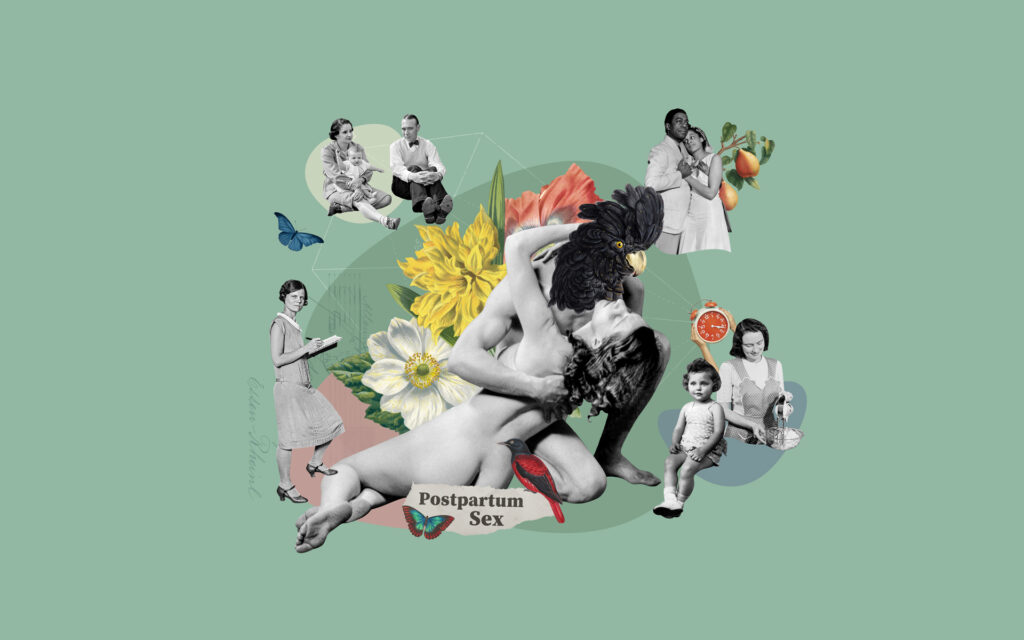
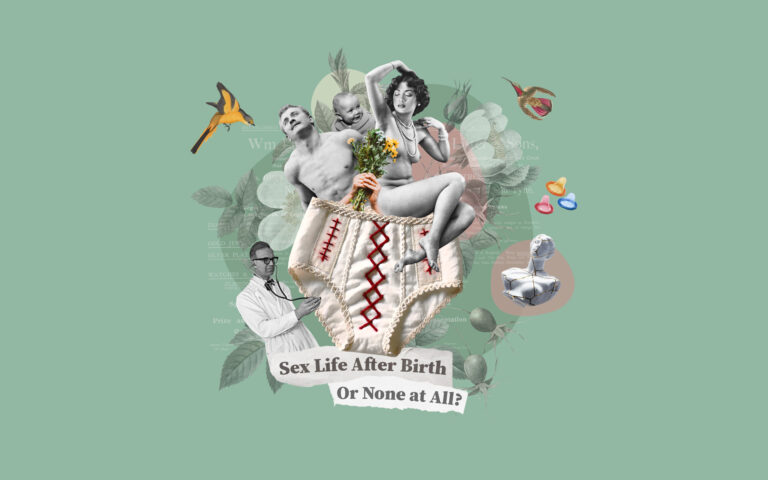
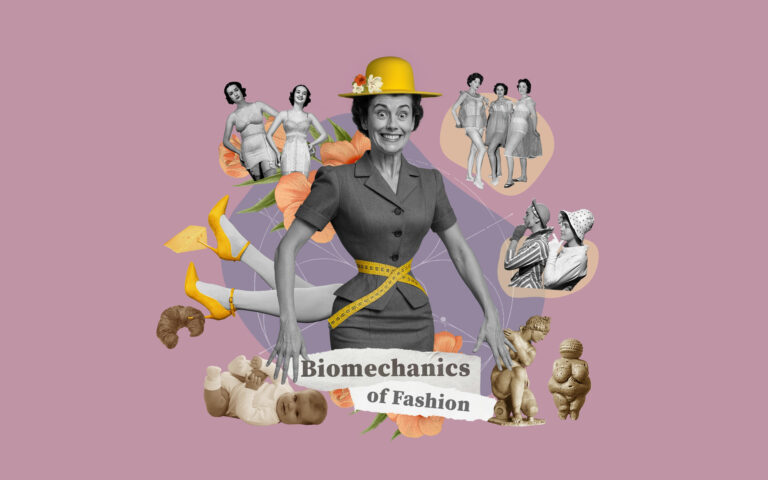
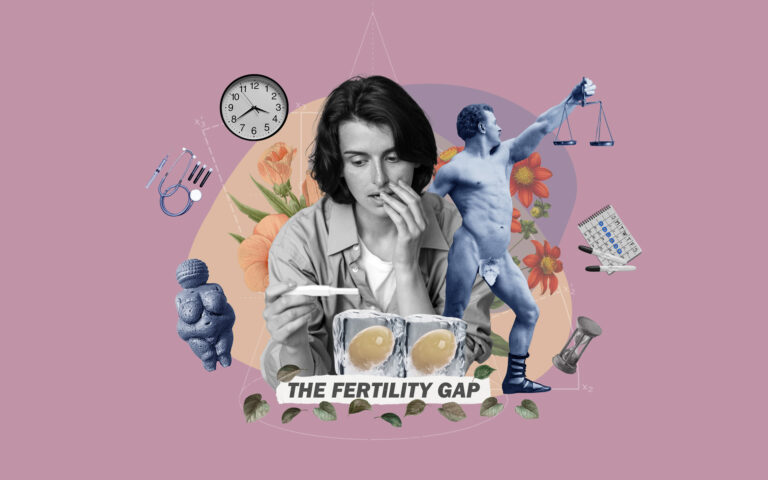


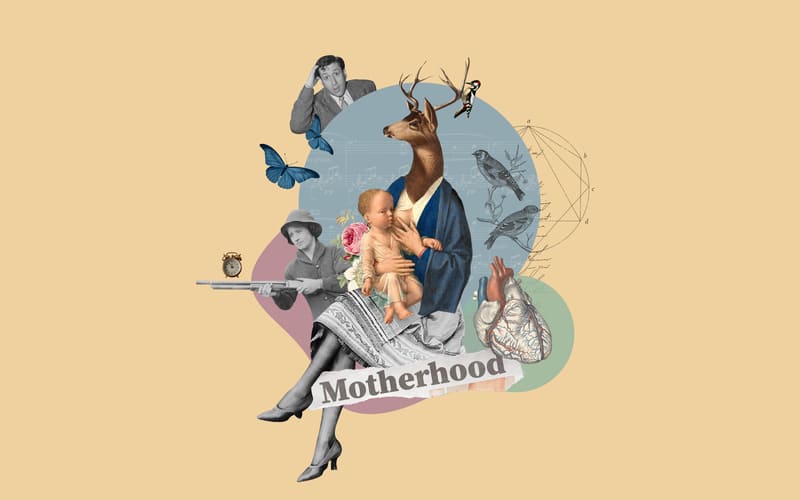
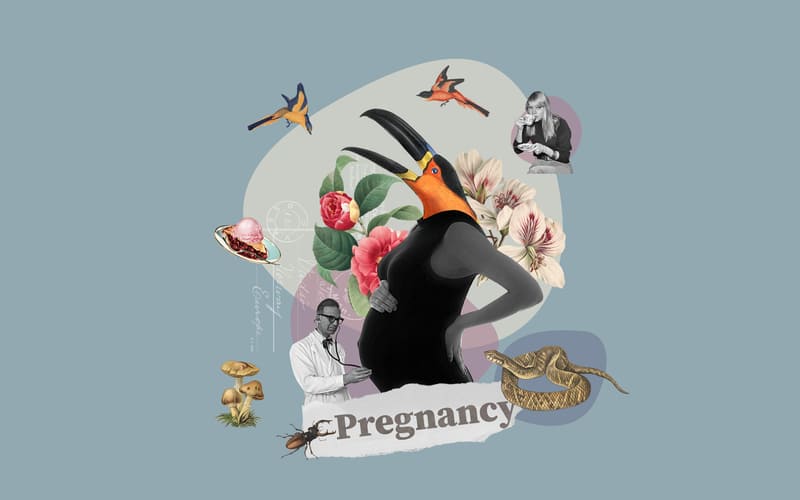
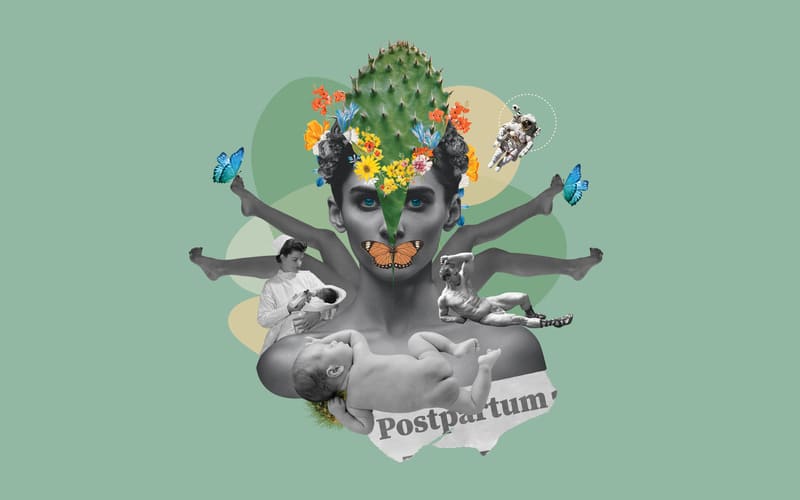

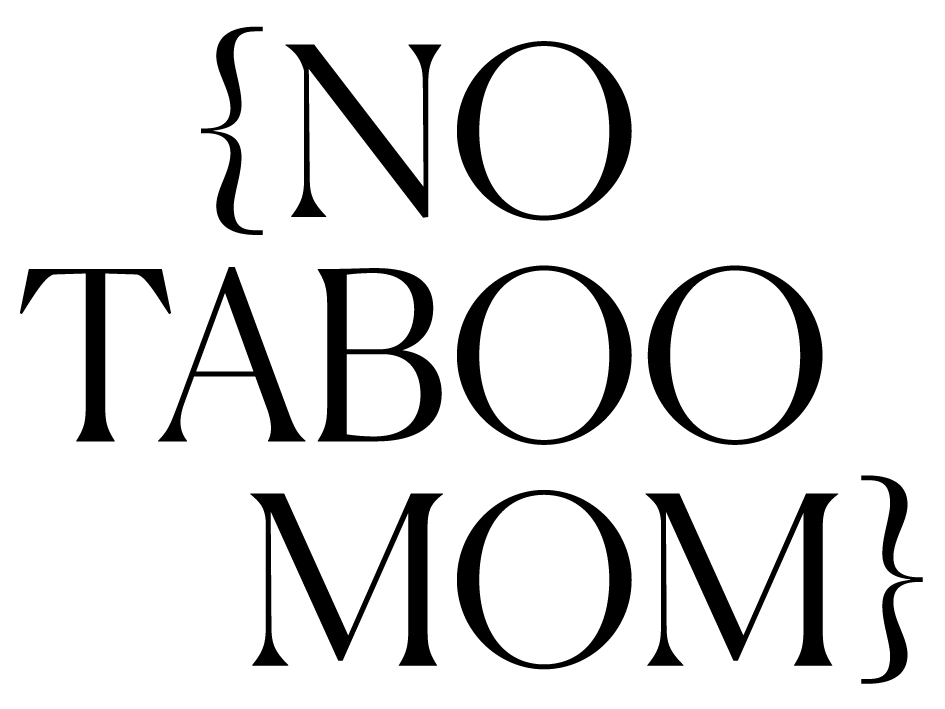
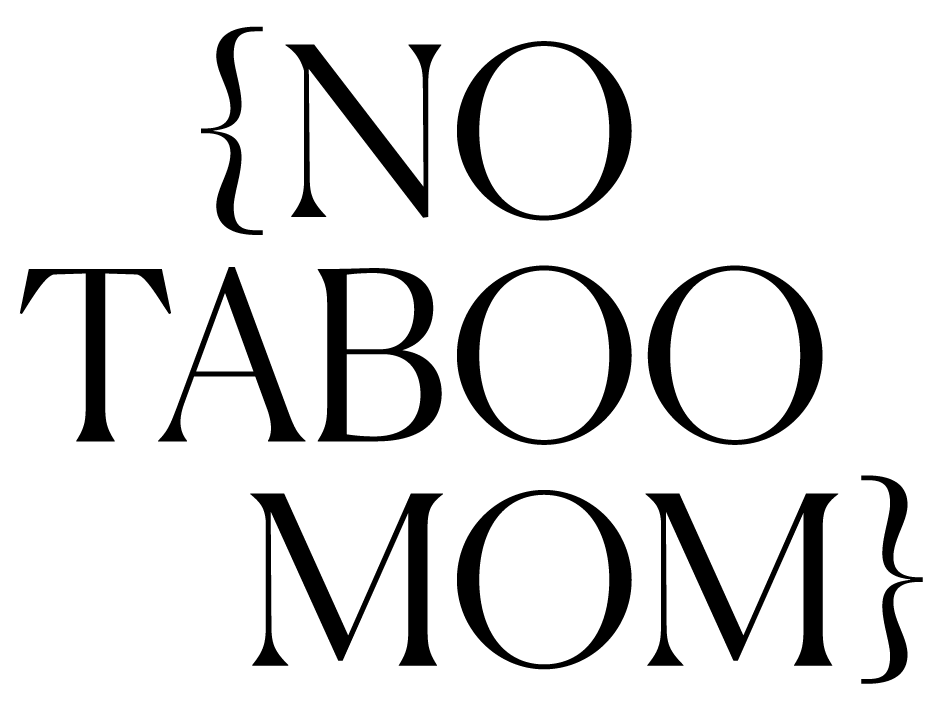
I loved reading this article! It is very relatable!
in 2023, I gave birth to my son. It was the most beautiful moment of my life, but my whole life changed, including our sex life, which is pretty much non existent at the moment. Luckily I have a very patient and kind husband. I had an episiotomy, and while people said at 6 weeks you can have sex again, I was still bleeding and taking pain killers 6 weeks later. The idea that something enters my vagina gives me shivers. Now, almost 7 months after birth, I still have not been intimate. I have become fearful of the idea. Even though I want to wait, the longer I wait, the bigger of a deal it becomes.
I also do not recognize my body at all. Before pregnancy, I was a very skinny fit girl. I exercised a lot, had a super flat belly and always wore my bikini with pride. I know that a woman’s beauty is not defined by her size, but I surely was very proud of my fit body. I sometimes even liked to show it off on my Instagram story if I would be in my bikini on a beach somewhere. But then came pregnancy. I gained 20 kg, and the weigh loss has been going slow after a birth. I still have a chubby belly, and it feels both good and bad. I am proud of that chubby belly, because this was for 9 months the home of my son. But the downside is, I do not feel sexy, this is not how my body used to be. i am still breastfeeding, and I am extremely sleep deprived, meaning that I am hormonal, moody and too tired for sex and I have entered a phase in my relationship where my Husband and I became roommates. I also wonder, what if I want to be intimidate again, where should we do it? Me and my baby co sleep. He also takes his naps in our bedroom. Our son is very attached to me and I do believe that it is ok for a baby to sleep closely to the mom, to regulate their heart rate, stress level and body temperature. But it sure is yet another thing in the way of our sex life. I am sure it will come back and I am happy to read that many women enjoy sex after having a kid. I remain positive, and I will get there.
Nationality: Netherlands
Number of children: 1
During my first pregnancy, I felt incredibly aroused all the time, leaving my partner struggling to keep up. Even up to the last day before giving birth, I found myself annoyed by my constant arousal. When I delivered my baby girl, it was a swift process, but I ended up with vaginal tears requiring stitches.
In the following eight weeks, my husband and I had conversations about sex and how I was feeling about it, as well as his own thoughts. He was supportive, encouraging me to take all the time I needed. However, I found myself unable to even touch myself or look at my own vagina. It all felt strange. While we attempted intimacy a couple of times, I had to stop when he touched me down there. It felt like experiencing sex for the very first time, and I was consumed by nerves. Fear of pain and concerns about how it would feel for both of us weighed heavily on my mind. Additionally, I felt ashamed of my leaking milk boobs.
Eventually, we did have sex. It felt okay, but somewhat numb. I wasn’t able to reach orgasm yet, and my husband didn’t notice any difference. While we did enjoy being intimate again, caring for our baby drained us of energy, leading to less frequent encounters.
During my second pregnancy, my desire for sex was non-existent compared to the first time. I felt unattractive and burdened by my weight. However, this birth experience was different. It was a beautiful home birth, with labor lasting only 90 minutes. The midwife couldn’t even arrive in time to witness it. I had vaginal tears again, but this time, I wasn’t afraid of resuming sex. Still, my libido was low, and it took us nearly three months postpartum to reconnect physically. Thankfully, the experience was pleasant, pain-free, and devoid of nerves. Our baby girl is now almost five months old, and we’ve only managed to be intimate twice. It’s a reality we’ve accepted for now, given our busy lives with two kids and ongoing breastfeeding.
I’m grateful for a partner like mine, who doesn’t place undue pressure on me and continues to love me for the woman I am today.
Nationality: Berlin
Number of children: 2
I had never given much thought to how will my sex life look like after childbirth, until my husband and I had our first postpartum sex and it sucked. Postpartum sex is one of those subjects nobody talks about before the birth. I had no idea our intimacy would change so much. When during the first postpartum checkup appointment my health care provider informed me that I am “ready” to resume sexual activity (not that I asked), I felt I should make myself “available” again. So we did. It was terrifying, painful and uncomfortable. I was far from being relaxed and turned on. When I think about it now, I feel ashamed and angry. Perhaps my body was “ready” to have sex, but mentally I was a mess. Funny enough, my partner never insisted for us to have sex so quickly. He knew I was struggling mentally and physically and he suggested that we wait a bit longer before having our “first time”. However I wanted to put this behind me… put this behind me? WTF? That alone was the most idiotic reason to have an intimate moment with my husband. But for some reason, I felt I have to be ready. I cannot really tell why or how I treated myself so unkindly and did not even consider how I really felt about having sex? Now I know that due to my birth injury (rectocele and cystocele), birth trauma and postpartum depression, lack of sleep, “touched out” feeling after cuddling and breastfeeding my baby 24/7, I simply felt no sexual desire and it was not the right time for sex. From a medical point of view, my body may have been ready to make love eight weeks after the birth (according to my doctor), but mentally, I was not ready for this kind of intimacy even one year after my baby was born.
If your postpartum sex experience is any similar to mine, I just want you to know that there are things you can undertake to improve your physical and mental wellbeing. Treatments that helped me a lot include Pelvic Floor Physiotherapy, Magnetic Field Therapy (highly recommended – the best treatment ever), Neural therapy – scar injection (abdomen, pelvis, and vagina), psychotherapy and in my case also surgery.
So to all of you, lovely ladies, if you are still in a survival mode, trying to get your life together after the childbirth, you may simply need more time to heal, recover, come into your new self and that is totally fine. Set up your own timeline for the postpartum sex, speak to your partner about it, trust your body and most of all, try to relax, get as much rest as possible and be kind to yourself. Good things need time, all the time you need! It does get better, I promise.
Nationality: Poland
Number of children: 1